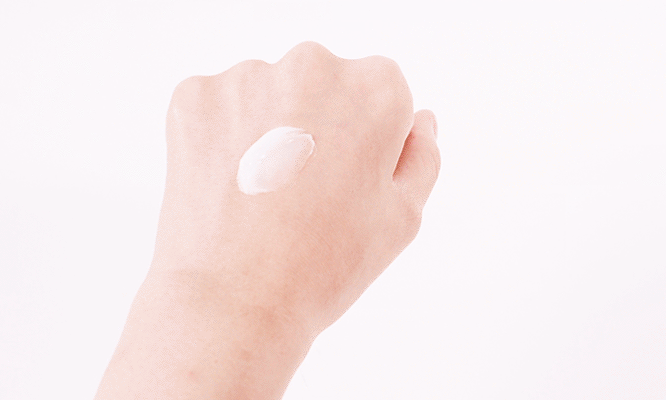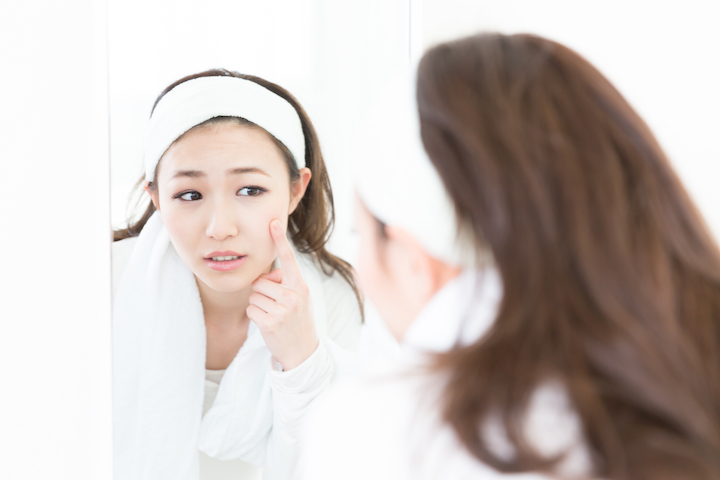They’re in almost every product in your vanity and shower, so they can’t be bad, can they? Or can they? We break it down for you so you can decide.
Are you all ready for another edition of Sheryll’s ingredient breakdown? Today, we’re talking about a polarizing ingredient — it’s prevalent in the vast majority of our skincare, but skeptics aren’t sure if it’s actually beneficial.
What’s the ingredient? Today, we’re going to be talking all about silicone.
What is silicone? What does it do?
If you’ve ever slathered a super smooth moisturizer on your skin or silky hair conditioner on your hair, nine times out of 10, it probably has silicone in it. Silicone is an ingredient easily identified on a product list by looking out for words ending in -cone or -siloxane, such as dimethicone and cyclopentasiloxane.
One of the most compelling features of a skincare product is its texture and spreadability. Silicones make products easy to spread on our faces and add that silky “slip” to our moisturizers and hair conditioners. They can blur out imperfections and are what can give a moisturizer or serum that super luxurious feeling. They are also in makeup, such as primers, eyeliners, eyeshadows, and foundations.

The good
“Natural” skincare purists will say that silicone in your skincare is harmful. The truth is, while silicones are not “natural” (they are synthetic), they do not pose a threat to your skin or the environment.
Silicone has gotten a bad rap over the years as one of the major acne causing ingredients. The good news is, this isn’t true. Sure, we (me included) have used a product with silicone and have possibly had a breakout, BUT there are no studies that prove silicone causes acne. They are non-comedogenic, non-irritating, and do not cause or pose any threats to people with sensitive skin.
Another myth about silicones is that they don’t allow your pores to “breathe,” which is also false because pores don’t breathe.
Silicones don’t and can’t penetrate the skin. Instead, they create a thin, buttery, water-resistant layer over your skin, smoothing out skin texture and protecting it from pollution, dirt, and bacteria. And contrary to popular belief, they DO allow other products to penetrate through this barrier. How? Well, the silicone molecules are quite large, with big spaces in between each molecule. These spaces allow substances like water, vitamin C, any any other ingredients to penetrate through this barrier and deliver their benefits to the skin.
The bad
Now silicones aren’t without fault. Yes, they make our skincare products feel luxurious on the skin, but they are terrible to remove. This is where double cleansing comes in. One of the reasons why I think people have problems with products containing silicone is that they aren’t washing their faces properly. When silicones are not removed properly (by double cleansing), they can build up on the skin, creating impenetrable layers that cause acne and dull, lifeless skin. The same thing happens to our hair!

While silicones can smooth and blur out imperfections, they don’t provide any hydrating benefits. If you have dry, dehydrated, or even oily skin, you’re going to want to pay close attention to how high up those silicone ingredients are. Sure, if might feel nice, but if the product isn’t actually providing moisture or hydration to your skin, you might want to avoid it. A solution? Natural oils, such as argan, watermelon seed, or marula with a nice hyaluronic acid serum.
The ugly
Some types of silicone can be harmful to the environment. You know, stanning Mother Earth is the cool thing to do now, so if you’re super into making sure the products you use won’t make a huge environmental impact, it’s probably best to steer clear of the ’cones. Silicones are non-biodegradable and non-recyclable.
Also, some people with sensitive skin, rosacea, and highly irritated skin should steer clear from products using silicone. Despite it being relatively safe for most skin types, people with sensitive skin can have an adverse reaction to the ingredient.
And lastly, silicones can interfere with our precious skin-regenerating abilities. You want to shed those dead skin cells daily, but a buildup of silicone over time can stop this process, resulting in acne and breakouts. This is what people are talking about when they say they get breakouts from silicone. You just gotta make sure you wash your face thoroughly!
Do you shy away from silicone? Let me know in the comments!
Loading...